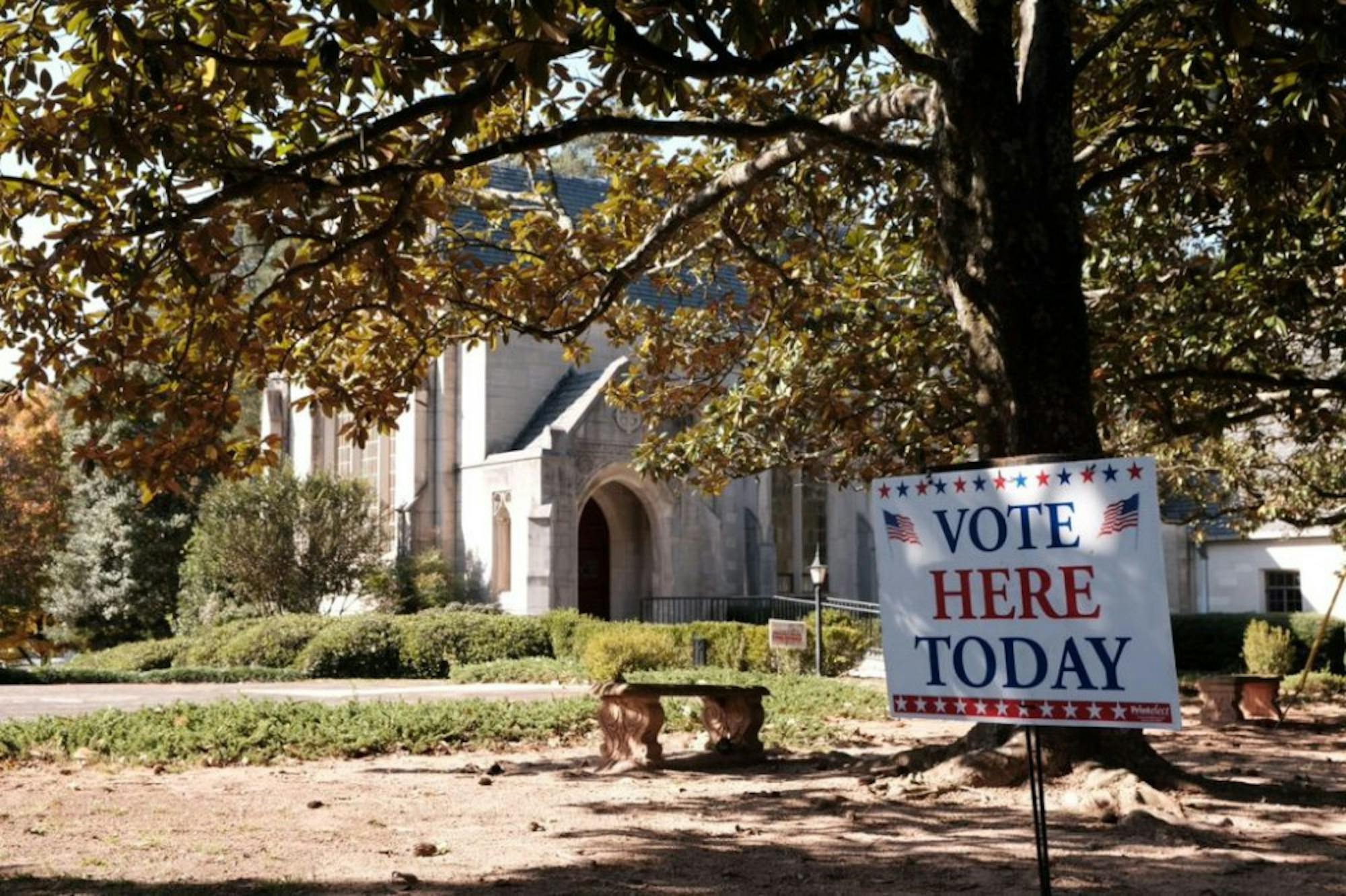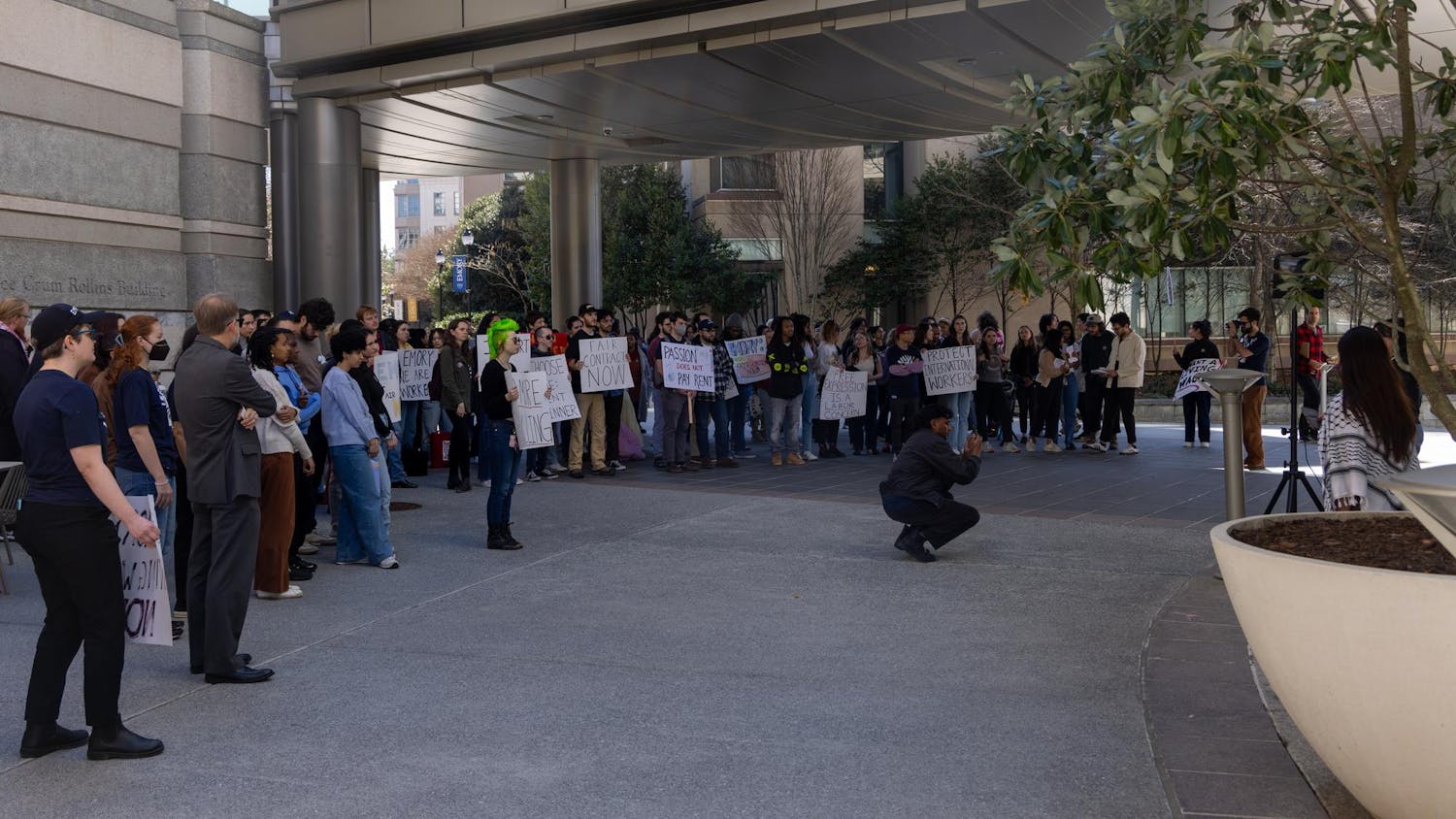Emory University students headed to the polls on Nov. 7 to vote in contested races for the District 3 and District 7 seats on the Atlanta Board of Education. Ken Zeff won the District 3 race to defeat incumbent Michelle Olympiadis. The race for District 7’s at-large seat will proceed to a runoff between incumbent Tamara Jones and Alfred “Shivy” Brooks on Dec. 5.
Zeff garnered 4,917 votes (63%) for the win while Olympiadis, who was elected to the school board in 2017, earned 2,891 votes (37%). After assuming his new role, Zeff aims to focus on increasing school funding and student literacy rates, which he considers to be at a “crisis level.” Additionally, Zeff’s platform included hiring the next permanent Atlanta Public Schools superintendent, as four people have held the role since 2014.
Jones received the most votes in the race for District 7’s seat with 12,996 (48.2%). Brooks was close behind with 12,764 votes (47.3%). Since neither candidate received a 50% majority, the race will proceed to a runoff next month.
With the end of her first term approaching on Dec. 31, Jones’ priorities include improving literacy education, collaborating more effectively with the City of Atlanta, providing equal opportunities for all students and maintaining fair representation of her constituents. Brooks’ platform emphasizes student conflict mediation, which he envisions as including “restorative justice practices,” and investing in student technology.
District 7 is at-large, covering the entire city of Atlanta, while District 3 includes the Druid Hills area where Emory is located. Emory students who live on campus and registered to vote by Oct. 10 were eligible to cast a ballot in both district races.

Associate Professor of Political Science Andra Gillespie noted that the school board elections were marked by low voter turnout. This year, 13.77% of the 506,088 registered voters in DeKalb County voted, which is notably lower than last year. In total, 59.09% of DeKalb’s 506,713 registered voters took to the polls during the 2022 election cycle.
“This is an off-cycle election,” Gillespie said. “It doesn’t coincide with elections for major offices, like Congress or governor or the president. I didn’t expect high turnout in the Atlanta school board race in particular.”
Young Democrats of Emory also noted low turnout. The group hosted three walks to the 1599 Clifton Road polling location throughout Election Day to encourage student voting. Two students who were not affiliated with the club participated across the three sessions, according to Young Democrats of Emory co-Vice President Noelle Barile (25C).
Young Democrats of Emory Freshman Representative Ellie Rice (27C) said this year’s school board elections likely did not excite students after last year’s Senate race, which ended in a slim runoff victory for Sen. Rev. Raphael Warnock (D-Ga.).
“It was low turnout because the school board isn’t really important to many students, especially because most students aren’t from Georgia,” Rice said. “It doesn’t really affect them at a larger scale, but I do still think it’s important for people to participate and use their right to vote.”
Jenny Jiang (26B), an organizing director for Young Democrats of Emory, led the 4 p.m. walk. Unlike last year’s senate races, which featured long lines throughout the voting period, Jiang said students who voted this year did not have to wait in line to cast their ballots.
“This time was super quick and easy,” Jiang said. “There wasn’t any line, just walked in, voted. It wasn’t a long ballot either. It was overall a very convenient experience.”
Rice added that she cast her ballot for the first time in Georgia this election.
“It was really nice to be able to participate in elections and just in general in Georgia's democracy,” Rice said.
Although abortion was not on students’ ballots this week, Gillespie explained that abortion played a significant role in races across the country. Voters in Ohio, a historically red state, elected on Tuesday to solidify access to abortion and other forms of reproductive health care into the state’s constitution.
“It’s notable that in states that are … more likely to be Republican leaning, that there’s actually still strong support for abortion rights,” Gillespie said.
Gillespie noted that Virginia Gov. Glenn Youngkin, who is Republican, called for a 15-week abortion ban while campaigning for Republican legislative candidates, only for Democrats to gain complete control of the Virginia General Assembly.
“The take-away that Democrats are going to take from this is that they can still run on abortion as an issue and use that to try to mobilize voters,” Gillespie said. “It was already likely that Democrats were going to make abortion rights a key part of their platform in 2024, they’re just more emboldened to do that now.”
Although students’ ballots primarily focused on the school board this year, Gillespie underscored the need for consistent participation in elections regardless of scale.
“Local politics matters,” Gillespie said. “People should pay attention to it more and activists, candidates, and just the non-partisan groups should make sure that voter mobilization is not just a quadrennial activity but that it’s something we engage in all the time just to promote good citizenship.”
Jiang expressed a similar sentiment, explaining that low turnout means Emory students’ individual votes carry more weight.
“In general, people on campus haven’t really talked about school board elections much,” Jiang said. “But that’s just what makes every single Emory student voting even more powerful.”








